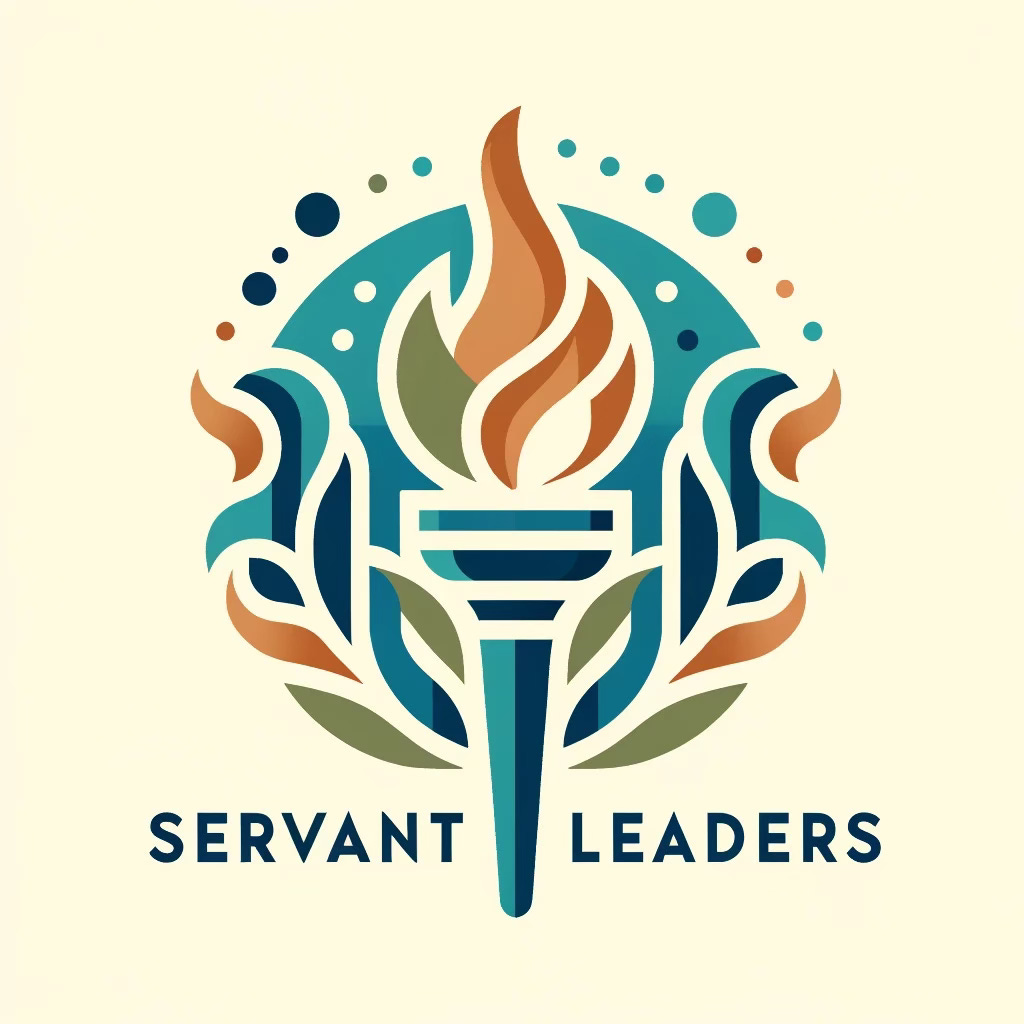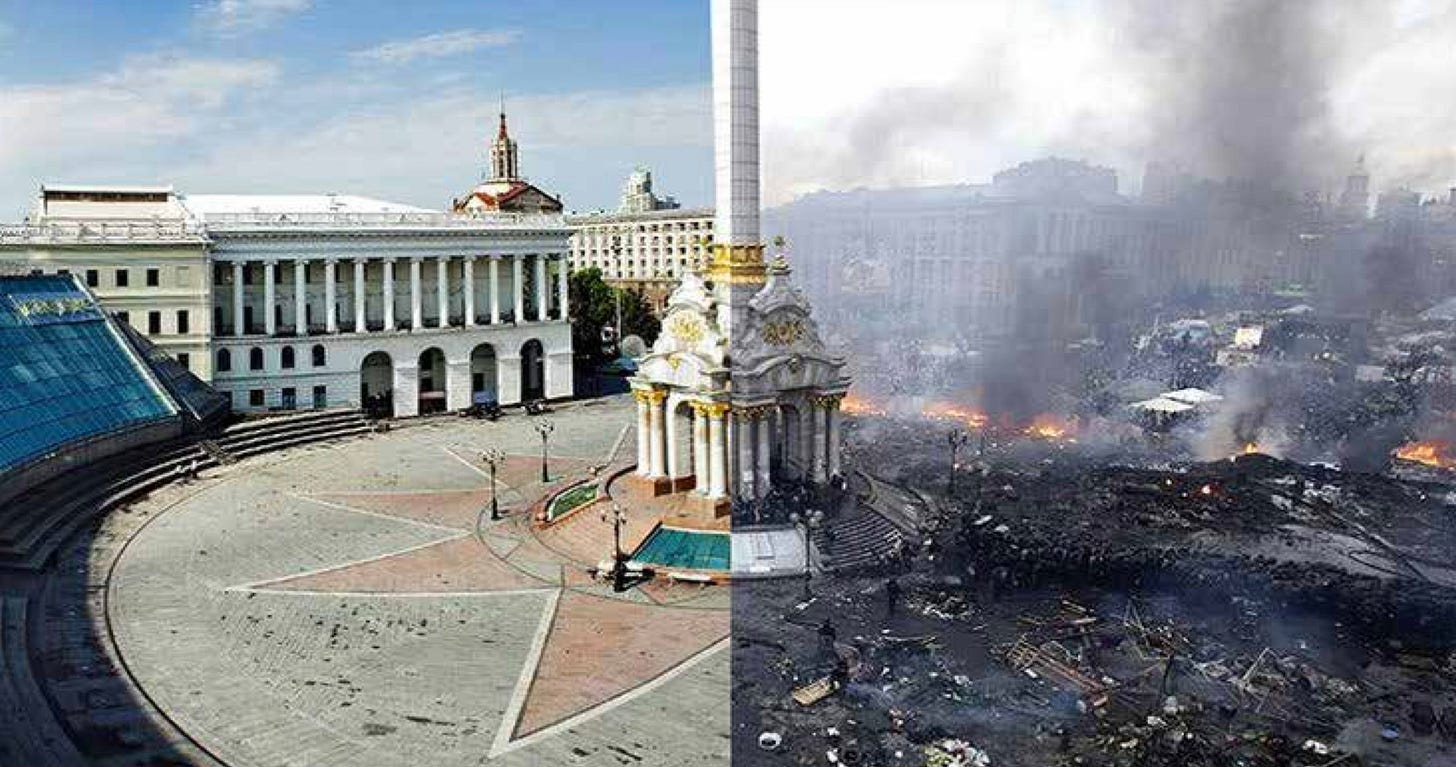Planting Seeds of Leadership and Hope in Ukraine
Never underestimate the power of small acts to grow into transformational change
“If you’re going to give someone a voice, give them the opportunity to make a personal commitment. It can be life-changing.”
This month’s Servant Leaders spotlight features Richard Fursman, whose remarkable story from the Servant Leadership Conference1 in January continues to resonate. A global expert in organizational development and a former city manager, Fursman has dedicated his career to helping organizations and communities navigate change. His work spans local governments in the United States to national reforms in Ukraine, including facilitating a landmark 2014 peace summit in Kyiv.
In his speech, Fursman shared a powerful message about planting seeds — small, intentional actions that grow into transformational change. Drawing from his time in the Navy, his wife Irina’s experiences in Ukraine, and their shared efforts in Sister City programs and youth initiatives, Fursman reminded us servant leadership often begins with simple gestures that ripple outward, even in the most challenging circumstances.
Sowing Change in the Navy
Sometimes, a small act can take root in ways we never expect. Fursman told a story from his time as a Navy meteorologist during a mission to monitor Soviet activity in the Arctic Circle in the early 1980s.
“We were in the Barents Sea. We were watched. We had a lot of company from the Soviet Navy. They followed us wherever we would go. They came so close that I could see their eyes. I could see their expressions. I could see them look directly at me.”
He would launch a weather balloon daily. And, every day, the Soviets would shoot it down and make a show of smashing the monitoring hardware on the deck of their vessel.
One day, he and his crewmates sent up a balloon that instead of a weather station had a box loaded with candy, cigarettes, and the kinds of photographs men in 1981 would take on long voyages to, uh, pass the time.
“We called them ‘goodwill ambassadors’ and folded them neatly inside,” he recalled with a laugh.
“We sent it up. And I remember the ship’s captain standing next to me. As I sent it up, he watched them shoot it down and said, ‘You know what, Fursman, they sure hate your weather balloons.’ The Soviets grabbed the package, smashed it open, and discovered the candy, cigarettes, and photos. They were scrambling, laughing, and collecting everything. The captain turned to me and said, ‘I take that back; they really love your weather balloons.’
“The next day, the ship was gone. It never came back. Something happened on that crew, something they didn’t want repeated.”
This seemingly small, rebellious act of kindness transcended geopolitical tension. It was a seed — a gesture that grew into an acknowledgment of shared humanity, even across enemy lines. This lesson stayed with Fursman as he later worked to bridge divides in far more dire circumstances.
Irina’s Seeds of Resilience
On the other side of the world, Fursman’s wife, Irina, was growing up in the Soviet Union. After her father was tragically killed for refusing to join a mafia group, Irina fled with her family to Ukraine. Despite immense challenges, she became the first recipient of a scholarship based on merit rather than bribes, earning degrees in mathematics and computer science.
Fursman described this pivotal moment as an “acorn moment” in Irina’s life.
“She became a trained facilitator, a trained acorn planter,” he said.
Through her work, Irina transformed herself into what Fursman calls “the most powerful oak tree I have ever seen.”
Irina’s journey was not just one of survival but transformation. Her experiences laid the foundation for her commitment to fostering change and empowering others, especially in her home country of Ukraine.
Sowing Seeds of Hope
Beginning in 2011, the Fursmans facilitated Sister City programs between cities in the United States and Ukraine, and created youth leadership programs. Irina trained Ukrainians how to become facilitators.
“She trained people on a new idea, on a new way of thinking,” he said. “She did this with several courses, several classes throughout the country of Ukraine. Unknown to her at the time, she was planting seeds, planting ideas in people’s heads that would be irresistible.”
In 2014, Ukraine stood at a crossroads. Following the Sochi Olympics, then-President Viktor Yanukovych abruptly reversed his promise to move Ukraine toward European Union membership, opting instead for closer ties with Russia. The decision sparked mass protests across the nation, known as the Maidan movement. What began as peaceful demonstrations in Independence Square turned deadly when the Berkut, Yanukovych’s personal police force, opened fire, killing 100 people in a single day.
Fursman said he and Irina sought to foster unity amid the chaos. “Maybe we should hold a peace summit,” he suggested. It was an audacious idea, but their experience in fostering dialogue and community action proved invaluable. They brought together over 300 participants from across the country — Ukrainian speakers, Russian speakers, and English speakers — to envision the Ukraine they wanted to build once the conflict ended.
The key question posed at the summit was simple but profound: “What kind of country do you want to live in when the war is over?” Despite differences in language, geography, and experience, participants found common ground in their values and vision. The principles they outlined became foundational to Ukraine’s decentralization reforms after Yanukovych fled.
The Maidan movement was a reflection of grassroots servant leadership — ordinary people stepping up to demand a better future. Fursman and Irina’s decision to hold a peace summit exemplified this spirit, creating a space for Ukrainians to articulate their vision for a united, democratic nation.
From Chaos to Connection: Building a Lifeline in Wartime Ukraine
The seeds the Fursmans planted in Ukraine became vital lifelines when full-scale war broke out in February 2022. With Russian forces invading, chaos gripped the country. Fursman noted traditional non-governmental organizations like the Red Cross and Doctors Without Borders were not present to help in those early days.
Keep reading with a 7-day free trial
Subscribe to Good Government Files to keep reading this post and get 7 days of free access to the full post archives.






